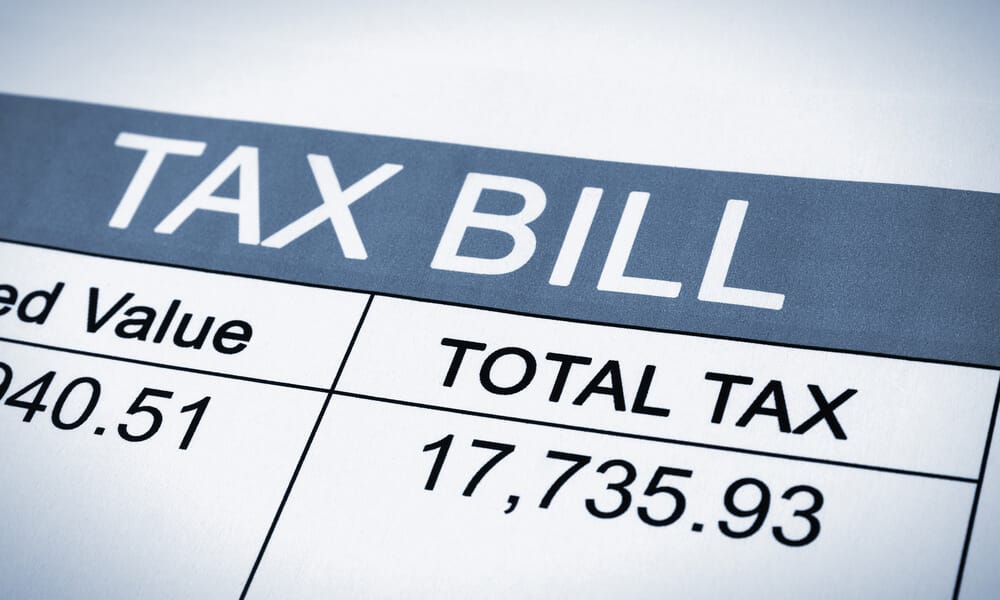Property taxes are based upon the current market value of your home at the time when you first purchased your home. The taxable value, or assessed value, is based upon the recorded sales price you and the seller agreed to. The sales price is recorded in county records and your annual tax bill is based upon that amount. Your property taxes are based upon a base rate of 1.00% plus an additional tax based upon where the property is located. Property taxes are paid in two annual installments with the tax bills going out sometime in late September or early October with due dates of December 10th and February 1st of the following year.
If you’ve owned a home before and refinanced an existing mortgage, your lender placed an order through an appraisal management company to calculate the fair market value of your home. This is done by comparing recent sales of homes in your neighborhood that are similar to yours. The appraiser considers these recent sales, called “comparable sales” first by researching the price per square foot of these “comps” and make various adjustments to arrive at a final figure.
These adjustments can be for the age of the property or its condition. If there any upgrades to the home such as a brand new kitchen or master bath, or perhaps a new deck was added or a wooden privacy fence. The appraiser takes into consideration all these variables to arrive at your appraised value. Yet the county doesn’t take the same path. Instead, the county figures the market value of the home is the final agreed upon price, all things being equal, and not a distressed sale such as a foreclosure at an auction.
The County Assessor’s office will receive notice the property has changed hands and the assessor will review the sales price and perform its own internal appraisal and issue a separate bill for any additional taxes owed based upon the newly assessed value.

Supplemental Taxes
Let’s put this into practice. Let’s say you bought a home, closed on your mortgage and you also escrow for taxes and insurance. Your settlement agent and your mortgage company only have the assessed value and annual property taxes recorded at the county.
The sales price is higher than the previous assessed value and after calculations the annual property tax bill is $5,000, which is $500 higher than the previously assessed property tax of $4,500. The new owners are then sent a separate bill with a new lien filed against the property in the amount of $500. The supplemental tax bill will show the due date and when the supplemental taxes will become delinquent. Upon receipt of the bill, the new owners have the right to protest the increase in taxes.
As with regular property taxes, supplemental taxes can also be paid in two installments. If this new bill for supplemental taxes is mailed from July 1 to October 31, the first installment is due December 10th and the second installment by April 10th of the following year.
If the bill was mailed anytime from November 1 through June 30 of the following year, the first installment will be considered delinquent on the last day of the following month the bill is mailed. If for example, the supplemental tax bill was mailed on November 15th, the first installment is due by December 31 while the second installment due on the last day of fourth month after the mailing date. In this example, the second installment for a supplemental tax bill is four months after December 31, or April 30.
It might be several weeks for a supplemental tax bill to arrive yet all the while you’ve been making escrow payments for taxes and insurance but at the lower assessed value. One thing to not about supplemental taxes is they cannot be paid by current escrow accounts and must be paid directly by the new owners and is a one-time charge. A supplemental tax won’t be calculated for the property until the property changes hands or the owners add more square footage to the home such as another bedroom.
You can also contact your servicer. The servicer is where you send your monthly payments. When you call, ask for an escrow analysis which will review how much you’ve paid into your impound account compared to the actual taxes owed and paid. Once the escrow analysis is complete there may be an excess amount in your account. If so, the excess will be sent to you for any overage which can then be used to pay the supplemental tax bill. Remember, you don’t get another supplemental tax bill unless you make significant changes to your property which would increase the value of your home. The county will be aware of the changes due to the permits pulled for new construction.

Impound Accounts
Impound accounts, also referred to as escrow accounts, can be set up at the same time your mortgage loan funds. Typically, if the first lien amount is greater than 80% of the sales price of your home, impound accounts will likely be a requirement, not a choice. Government-backed loans such as FHA, VA and USDA loans all require impounds. If your mortgage amount is at or below 80% of the value, you do have an option.
So, should you escrow for your taxes and insurance if you have the option?
It’s really more a matter of personal preference instead of any solid financial plan. For many, it’s simply more convenient to contribute a little each month and have the servicer pay the taxes and insurance when due from the impound account balance while others like to keep control of taxes and insurance and pay on their own.
Just remember, if you get a supplemental tax bill in the mail, don’t ignore it because your impound account will not recognize it and won’t pay the bill. It’s something you must pay separately and outside of your impound account.


